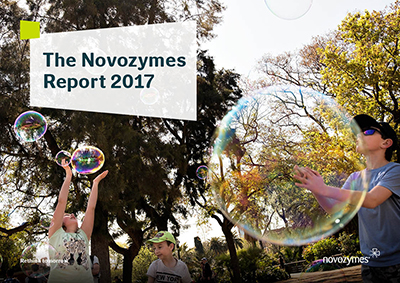Sustainability has become a top priority for China’s future development. In 2017, the Chinese Ministry of Industry and Information Technology launched a program to encourage green manufacturing. With Novozymes’ expertise in life cycle assessment (LCA)An environmental assessment tool that addresses environmental impacts from all processes in the production of products, from raw material extraction through production and product use to final disposal., we helped one of our customers – the NICE Group – join this program.
With blockbuster brands such as DIAO, NICE is one of China’s largest detergent manufacturers. We spoke to Hu Zhengyu, Chief Engineer of the NICE Group, about sustainability trends in the Chinese detergent market.
How is the market for green household care products evolving in China?
The Chinese detergent market is probably one of the biggest in the world. In the past, almost all products were derived from petroleum-based materials, but we are gradually seeing a change toward greener products. We can no longer sustain our old pattern where we develop the economy at the cost of the environment. The government has started a new green manufacturing program, which calls on all relevant industries to rethink their processes – from product design to packaging.
From a consumer standpoint, it is very straightforward and simple: Consumers link green and renewable with safety and personal health. As a result, more and more companies – not just end-product manufacturers, but also raw material suppliers – plan to supply more green products to the market.
Why is sustainability important to NICE?
From a narrow perspective, we want to grow our business by meeting consumer needs. NICE has always been a pioneer in the market, and we do not want to lag behind in this green transition. From a wider perspective, we have a responsibility toward society and the environment. As we increase production, we must be wiser about our consumption of materials and energy. We cannot consume everything today and leave nothing for the generations after us. That is why we believe we need to act on sustainability, starting today.
How does Novozymes support your sustainability journey?
In the past, NICE and Novozymes have collaborated in many areas, but we had not worked in depth on sustainability issues until now.
In 2017, NICE wanted to join the government’s green manufacturing program. One of the requirements is that companies must demonstrate the green credentials of their existing and future products through LCAs. We knew the concept, but we had no experience of conducting a real LCA for a specific product.
Novozymes is a pioneer in this field, and so we reached out for help. It was more complex than we thought. We had several talks and shared a lot of basic product information. It was a tight timeline, but we met the application deadline and were selected for the program. This is just the first step. As we expand our product portfolio, we will need to do similar work for our new formulations.
What are your key sustainability challenges going forward?
LCAs tell us how green our products are and where we can improve. Now, the focus for us, and indeed for the industry, is how to make our products greener. There are three key areas of improvement – raw materials, logistics and packaging. For example, today and for the foreseeable future, we will rely largely on truck transportation, as greener options such as rail or ship are limited in China.
One alternative to reduce the volume of truck transportation is to make our products more concentrated, meaning they will be lighter. But here, we encounter another challenge – public acceptance. In China today, consumers tend not to opt for concentrated products. We are working on communication and developing new product concepts with extra benefits to encourage consumers to buy concentrated products, such as more washes for the same cost. If we can encourage half the market to switch from conventional to concentrated detergents, we will save huge amounts of energy in terms of transportation and packaging. That will be a leap forward for sustainable development.






